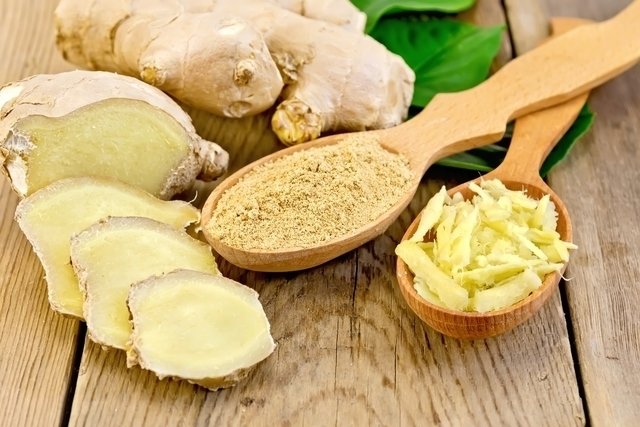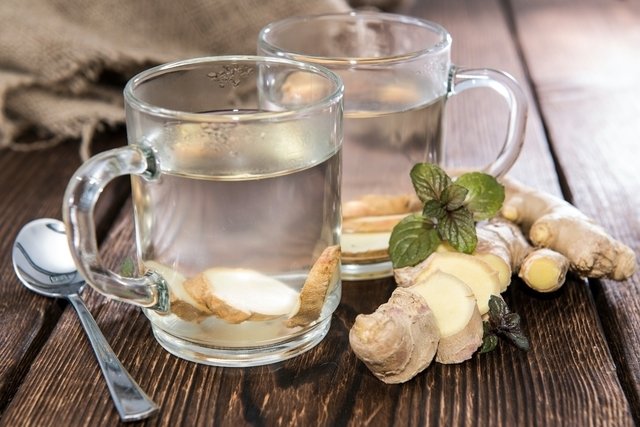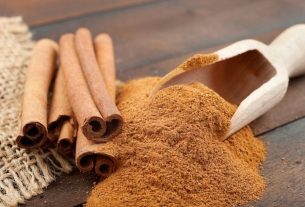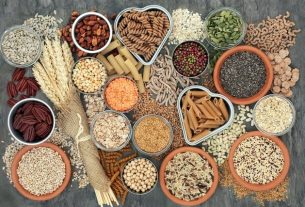Contrary to popular belief, ginger does not increase blood pressure and can, in fact, help reduce high blood pressure due to its phenolic compounds in its composition, such as gingerol, chogaol, zingerone and paradol, which have antioxidant and anti-aging properties. -inflammatory, which facilitate the dilation and relaxation of blood vessels.
Therefore, ginger is actually very good for those with high blood pressure and can also help prevent thrombosis, stroke and cardiovascular problems, such as atherosclerosis and heart attack.
However, ginger to lower blood pressure should only be used under the guidance of the doctor responsible for treating high blood pressure, as ginger can interact with some of the medications used to control blood pressure, and is not recommended for those using anticoagulants.

Benefits of ginger for blood pressure
Ginger is a root that brings the following benefits to lower high blood pressure, because:
- Reduces inflammation in blood vessels;
- Increases the dilation and relaxation of blood vessels;
- Reduces damage caused by free radicals in blood vessels;
- Reduces the burden on the heart.
Furthermore, ginger improves blood flow by having an anticoagulant action, protecting the health of arteries and blood vessels.
How to use ginger to lower blood pressure
To be able to take advantage of the benefits of ginger to lower blood pressure, you can consume up to 2 g of ginger per day in its natural form, grated or in the preparation of tea, and using this fresh root has more benefits than powdered ginger or in capsules.
1. Ginger tea
Ingredients
- 1 cm of ginger root, cut into slices or grated;
- 1 liter of boiling water.
Preparation mode
Bring the water to a boil and add the ginger. Let it boil for 5 to 10 minutes. Remove the ginger from the cup and drink the tea in 3 to 4 divided doses throughout the day.
Another option for making tea is to replace the root with 1 teaspoon of powdered ginger.
2. Orange and ginger juice
Ingredients
- Juice of 3 oranges;
- 2 g of ginger root or 1 tablespoon of grated ginger.
Preparation mode
Place the orange juice and ginger in a blender and blend. Drink the juice divided into two doses per day, half the juice in the morning and half the juice in the afternoon, for example.
Check out other ways to consume ginger to enjoy its benefits.
Possible side effects
Excessive consumption of ginger, more than 2 grams per day, can cause a burning sensation in the stomach, nausea, stomach pain, diarrhea or indigestion.
If you experience an allergic reaction such as difficulty breathing, swelling of the tongue, face, lips or throat, or itching on the body, you should seek the nearest emergency care immediately.
Who shouldn’t use
Ginger should not be used by people using medications:
- Antihypertensives such as nifedipine, amlodipine, verapamil or diltiazem. Using ginger with high blood pressure medications can significantly lower blood pressure or cause changes in heart rate;
- Anticoagulants such as aspirin, heparin, enoxaparin, dalteparin, warfarin or clopidogrel as ginger can increase the effect of these medicines and cause bruising or bleeding;
- Antidiabetics such as insulin, glimepiride, rosiglitazone, chlorpropamide, glipizide or tolbutamide, for example, as ginger can cause a sudden decrease in blood sugar, leading to symptoms of hypoglycemia such as dizziness, confusion or fainting.
Furthermore, ginger can also interact with anti-inflammatories such as diclofenac or ibuprofen, for example, increasing the risk of bleeding.
Bibliography
- HASANI, Hossein; et al. Does ginger supplementation lower blood pressure? A systematic review and meta‐analysis of clinical trials. Phytotherapy Research. 1-9, 2019
- DRUGS.COM. Ginger Information from Drugs.com. Available at: <https://www.drugs.com/mtm/ginger.html>. Accessed on 04 Dec 2020
- ALI, Badreldin H.; et al. Some phytochemical, pharmacological and toxicological properties of ginger (Zingiber officinale Roscoe): A review of recent research. Food and Chemical Toxicology. 46. 409–420, 2008

Sign up for our newsletter and stay up to date with exclusive news
that can transform your routine!
Warning: Undefined array key "title" in /home/storelat/public_html/wp-content/plugins/link-whisper-premium/templates/frontend/related-posts.php on line 12
Warning: Undefined array key "title_tag" in /home/storelat/public_html/wp-content/plugins/link-whisper-premium/templates/frontend/related-posts.php on line 13





